Cargando...
Recursos educativos
-
Nivel educativo
-
Competencias
-
Tipología
-
Idioma
-
Tipo de medio
-
Tipo de actividad
-
Destinatarios
-
Tipo de audiencia
-
Creador
Lo más buscado
- Relieve de Asia
- Actividades de geometría en noveno
- Experimentos naturales
- Experimentos con globos
- Derechos infantiles
- Capitales de África
- Ejercicios escolares para niños de 2 años
- Rimas con letras
- Música afrocubana
- método lectoescritura
- Actividades de lectoescritura en quinto
- Juegos de tablas de multiplicar segundo
- Cuentos cortos para dormir
- Guerra de Irak
- Actividades de ciencia para niños
-
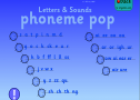
Letters & Sounds: Phoneme Pop
Tiching explorer Organización
- 2513 visitas
Resource designed to support phoneme recognition. Sound groups taken from 'Letters and Sounds', e.g. sets 1 & 2 "s, a, t, p, i, n, m, d".
-
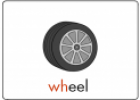
Phonics (flashcards)
Kiz club Organización
- 3853 visitas
Collection of printable flashcards (PDF). They will help in teaching sounds. There is a printable set for each phoneme.
-
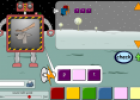
-
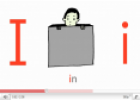
Video: Phonics Chant
Tiching explorer Organización
- 3421 visitas
The resource consists of a listen and repeat video. Each letter name is given, followed by its phoneme, followed by an anchor word. We review the English alphabet and the sound of each letter.
-
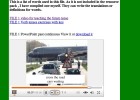
Lesson plan: New English File Intermediate Unit 1
Tiching explorer Organización
- 3 lo usan
- 4104 visitas
This page organizes the contents of the book into lists, vocabulary banks and presentations. This first unit is about past continuous, the /u:/ phoneme, the difference between static and dynamic verbs…
-
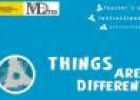
Things are different: Differences
INTEF Organización
- 3379 visitas
Activity designed to help us practice gramar (comparatives and superlatives, order of adjectives in the sentence) and vocabulary (patterns, clothes and materials). We practice describing clothes, asking…
-

Video about Used To vs Simple Past and polite requests
British Council Organización
- 3 lo usan
- 6452 visitas
After watching "Blackpool Scene 2" (from the "Word on the Street" series), in this video we learn the difference between simple past and "used to". For the latter, we also…
Te estamos redirigiendo a la ficha del libro...










